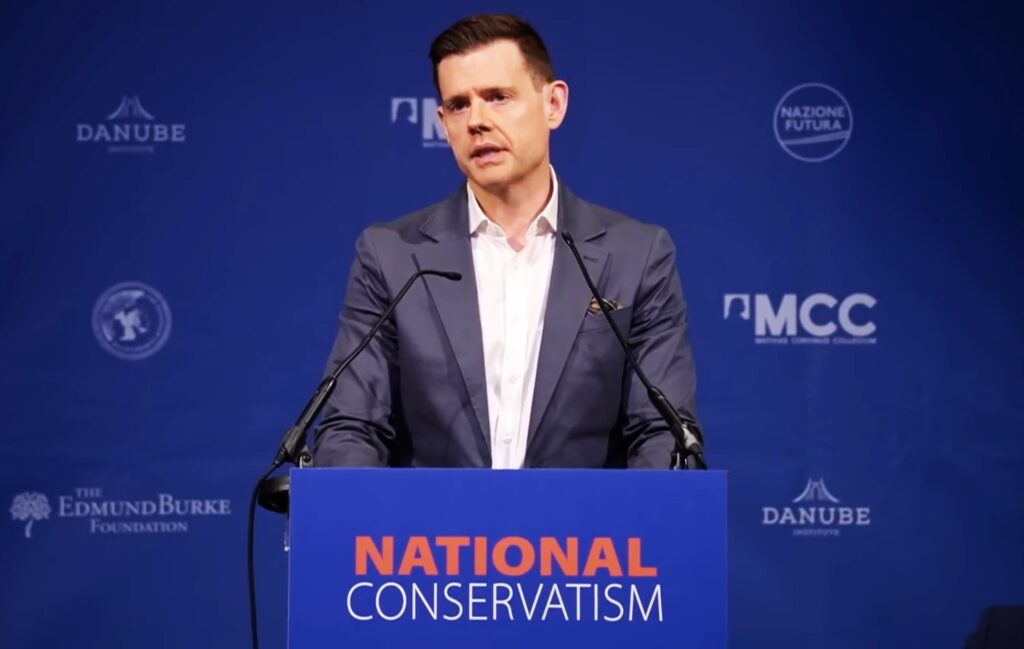Organisations promoting climate science denial and anti-environmentalism in Europe share the same rhetoric, narratives and right-wing links as their US counterparts, new research has found.
The paper published in the journal Climatic Change examines publications from eight of the most prominent contrarian thinktanks in six EU countries over 24 years from 1994 to 2018, and argues the organisations enjoy a “remarkable” level of political influence for their size.
These include the UK-based Global Warming Policy Foundation (GWPF), the Institute of Economic Affairs (IEA) and the Centre for Policy Studies (CPS), as well as the German Europäisches Institut für Klima und Energie (EIKE), the Austrian Economics Centre (AEC), Institut Économique Molinari (IEM) in France, Instituto Juan de Mariana (IJM) in Spain and the Liberales Institut (LI) in Switzerland.
The researchers found an increase in environmentally-focused activity by these organisations in Europe after 2007 and again between 2015 and 2018.
The publications echoed the arguments put forward by US thinktanks, with a fifth denying climate science outright. Of those which accepted that the planet is warming, many downplayed the role of people in causing it, were sceptical about policies to tackle the problem, or argued that climate change was actually a good thing.
As well as openly contesting climate science, many of the critiques were aimed at environmental campaigners, politicians or journalists.
“Well-worn climate change counter-frames” spread by US thinktanks are being “consistently circulated” by European organisations, too, the research concludes.
Populism and ideology
The paper says that European denialist organisations “cannot be seen as a moderate version of the US” and their influence is “still growing”. It adds that most are politically influential despite being relatively small organisations, describing this as “remarkable”.
The researchers link the rise in activity in Europe in recent years to the publication of major scientific reports by the Intergovernmental Panel on Climate Change in 2007 and 2014, the rise of right-wing populism after the 2008 recession and, in the UK specifically, Brexit.
Like what you’re reading? Support DeSmog by becoming a patron today!
As in the US, researchers found that this anti-environmental outlook was strongly linked to neoliberal and conservative ideology. All the European organisations studied promoted some variation of this, whether it was supporting economic growth as a solution to environmental problems, market self-regulation, minimum government intervention or criticism of pollution taxes.
Núria Almiron, Associate Professor of Communication at the Universitat Pompeu Fabra in Barcelona and lead author of the study, said such arguments are affecting wider society in two important ways: “Some people may start to think that maybe this climate consensus is not such a consensus, and policy-makers and advocates may be less radical in their proposals to avoid trouble.”
Global network
It is also notable that European thinktanks are well connected to their climate denialist US counterparts and sometimes share the same financial backers, according to the paper.
Almiron said the evidence suggests the networks of US and European climate sceptic thinktanks are intertwined. “We have the intention by some… of creating a global network, a global counter-movement. The US climate change counter-movement has been clearly supportive of the emergence of the European climate change counter-movement and very much involved in it.”
In Almiron’s view, the problem can only be addressed by tackling deep-rooted inequalities in wealth and power. “We can attempt to challenge these narratives with our narratives but as long as there are so many inequalities in society there will always be fertile terrain for populist seeds. In this respect, I see the climate change counter-movement just as one modern version of traditional populism.”
Photo credit: R4vi/Flickr/CC BY–SA 2.0
Subscribe to our newsletter
Stay up to date with DeSmog news and alerts






